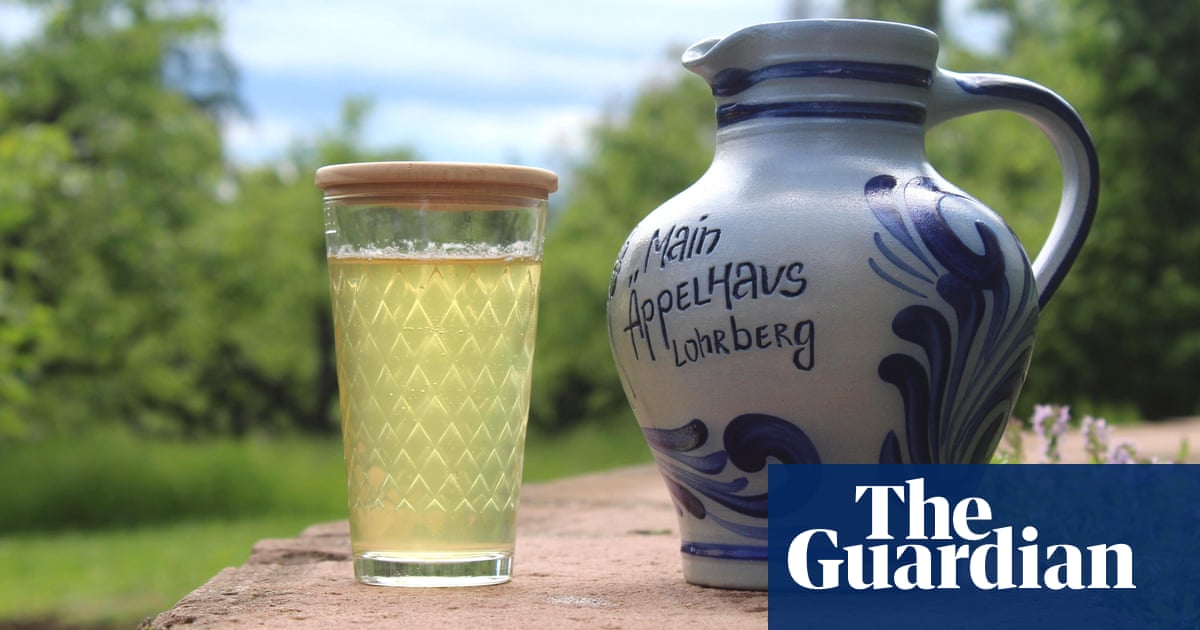I am sitting in Atschel, a cosy, if crowded Apfelweinwirtschaft (apple wine tavern) in Sachsenhausen, south of the River Main from Frankfurt’s central Römerberg plaza. Germany’s financial capital is one of the host cities for Euro 2024, and such taverns, and their leafy gardens, will be heaving during the competition.
England play Denmark here on 20 June, while Germany face Switzerland three days later. This is a nation renowned for its beer quality, of course, but those visiting Frankfurt for the football will find that here, another drink rules: Apfelwein.
This traditional Hessisch cider – the beverage of the state of Hessen – is dry, still, unfiltered and is made from sour apples, making it taste tart. Many locals top it up with sparkling water, diluting the flavour, dampening the 5-7% alcohol and making the beverage particularly refreshing on hot days. Hardcore Sachsenhauseners drink Apfelwein pure.
Atschel is bustling with locals, young and old, squished together on communal benches. A large grey jug, decorated with floral blue artwork, is soon plopped on the table before me. It is called a Bembel and it is an icon of Frankfurt, exclusively used to serve Apfelwein – or Ebbelwoi as it is called in local dialect. Bembels line the shelves and hang above the bar. This Bembel is an Achter (eight-er), meaning it contains enough apple wine to fill eight Gerippte; the 0.3-litre, diamond-patterned glasses in which the drink is served. The ribbed design makes the liquid gleam in the light (and makes it easier to grip after eating a greasy sausage).
I’ve come to Atschel to meet Apfelwein historian Stefan Krämer, a large, friendly man with a full, white beard and encyclopaedic knowledge of local history. After pouring a drink, Krämer covers his glass with a Schoppedeckel – a wooden lid to protect it from insects (and sloppy speakers).
Frankfurt is obsessed with Apfelwein. While London has the Gherkin, the city’s novelty skyscraper is das Gerippte – a 110-metre-high (360ft) apple wine glass overlooking the Main. On my way to Atschel I see pottery shops stacked floor to ceiling with Bembel and pass a shrine to Adam and Eve with apple and Gerippten in hand. Spruce wreaths hang above the cobblestone streets and doorways of half-timbered houses, identifying an Apfelweinwirtschaft to those in the know.
Click Here to Read the Full Original Article at Travel | The Guardian…
